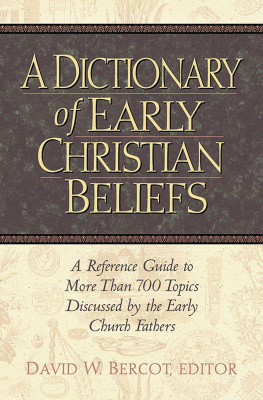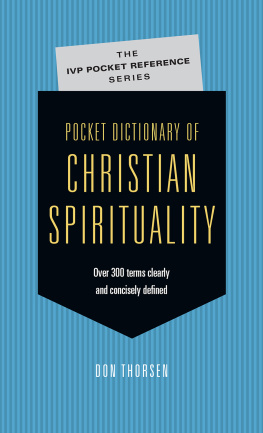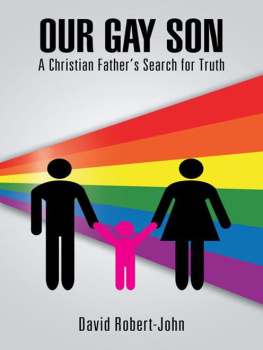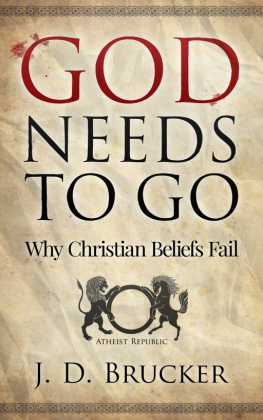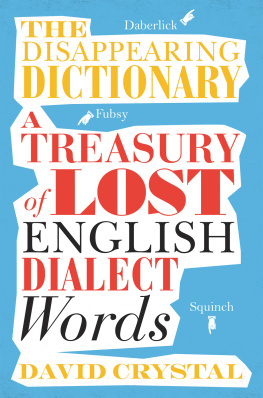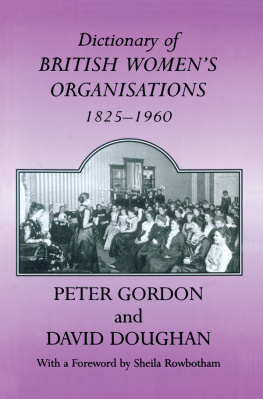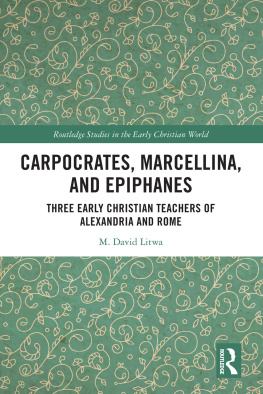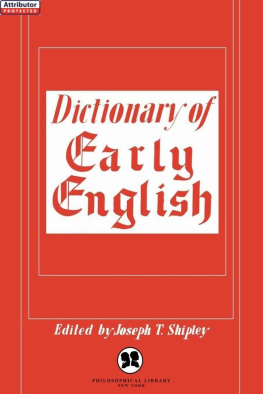David W. Bercot - A Dictionary of Early Christian Beliefs
Here you can read online David W. Bercot - A Dictionary of Early Christian Beliefs full text of the book (entire story) in english for free. Download pdf and epub, get meaning, cover and reviews about this ebook. year: 0, genre: Religion. Description of the work, (preface) as well as reviews are available. Best literature library LitArk.com created for fans of good reading and offers a wide selection of genres:
Romance novel
Science fiction
Adventure
Detective
Science
History
Home and family
Prose
Art
Politics
Computer
Non-fiction
Religion
Business
Children
Humor
Choose a favorite category and find really read worthwhile books. Enjoy immersion in the world of imagination, feel the emotions of the characters or learn something new for yourself, make an fascinating discovery.
- Book:A Dictionary of Early Christian Beliefs
- Author:
- Genre:
- Year:0
- Rating:5 / 5
- Favourites:Add to favourites
- Your mark:
- 100
- 1
- 2
- 3
- 4
- 5
A Dictionary of Early Christian Beliefs: summary, description and annotation
We offer to read an annotation, description, summary or preface (depends on what the author of the book "A Dictionary of Early Christian Beliefs" wrote himself). If you haven't found the necessary information about the book — write in the comments, we will try to find it.
A Dictionary of Early Christian Beliefs — read online for free the complete book (whole text) full work
Below is the text of the book, divided by pages. System saving the place of the last page read, allows you to conveniently read the book "A Dictionary of Early Christian Beliefs" online for free, without having to search again every time where you left off. Put a bookmark, and you can go to the page where you finished reading at any time.
Font size:
Interval:
Bookmark:
A Dictionary of Early Christian Beliefs (eBook edition)
Hendrickson Publishers Marketing, LLC
P. O. Box 3473
Peabody, Massachusetts 01961-3473
eBook ISBN 978-1-61970-168-7
1998, 2013 by David Bercot
All rights reserved. No part of this book may be reproduced or transmitted in any form or by any means, electronic or mechanical, including photocopying, recording, or by any information storage and retrieval system, without permission in writing from the publisher.
Due to technical issues, this eBook may not contain all of the images or diagrams in the original print edition of the work. In addition, adapting the print edition to the eBook format may require some other layout and feature changes to be made.
First eBook edition June 2014.
A Dictionary of Early Christian Beliefs allows the user to quickly ascertain what the early Christians
Why are the beliefs of these early Christian authors important? Because early Christian testimony holds that many, such as Clement of Rome and Polycarp, personally knew the apostles of Jesus. They were approved by the apostles and appointed by the apostles to positions of church leadership. Modern students of church history must largely depend on these and other early Christian writers for information on topics of major import, such as who wrote the New Testament documents and how the Christian canon of Scripture came into being. Furthermore, these early Christians interpretation of the Scriptures is among the most valuable commentary on Scripture anywhere. To be sure, none of these writers claimed divine inspiration; nor did they equate their own writings with Scripture. They did, however, claim that they were faithfully passing along the faith that the apostles had delivered to the church.
Users of this dictionary should first grasp the ethos of early Christianity. That ethos can be summarized in two basic principles: (1) the earliest Christians focused on living in the light of the Christian message and explaining that message to nonbelievers rather than on sharpening their theological prowess; and (2) early Christian doctrine is less elaborate and less defined than later formulations.
To say that the early Christians focused on living the gospel rather than on theological hair-splitting does not mean that individuals taught whatever they wanted. There were recognized boundaries that prevented such a laissez-faire attitude. Nonetheless, to the early Christians, the heart of their faith consisted of an obedient love relationship with Christ, not the ability to articulate dogma. None of the testimony of the writers in this volume arose from some professional theologians; rather, like the apostle Paul, many lived in the trenches, on the cutting edge of Christian life, and in fact, a substantial number of these early Christian writers died as martyrs.
The early church concentrated chiefly on the nature of Christian living because the essential core of Christian belief (i.e., the rule of faith) can be expressed quite briefly. The church believed that the Christian faith is a fairly simple one. Cyprian wrote,
When the Word of God, our Lord Jesus Christ, came unto all, he gathered alike the learned and unlearned. He published the teachings of salvation to each sex and every age. He made a concise summary of His teachings, so that the memory of the scholars might not be burdened with the heavenly learning. Instead, we could quickly learn what was necessary to a simple faith. (ANF 5.455).
Echoing those sentiments, Lactantius remarked,
The secrets of the Most High God, who created all things, cannot be attained by our own ability and perceptions. Otherwise, there would be no difference between God and man, if human thought could reach to the counsels and arrangements of that eternal majesty. (ANF 7.9)
Irenaeus criticized the heretics for going beyond the simple teachings of the faith, saying, They form opinions on what is beyond the limits of understanding. For this cause also the apostle says, Be not wise beyond what it is fitting to be wise, but be wise prudently (ANF 1.548).
Suppose a reader wants to know what the early Christians believed about the fall of man. Under the entry Fall of Man, a number of early Christian texts are cited. Note, though, that selected Scriptures precede the early Christian quotations. The intent is not to include every biblical passage concerning the fall of man. Rather, these are some of the key texts used by the early church.
Following the Scripture passages are quotations from early Christians, listed in approximately chronological order:
The human race... from Adam had fallen under the power of death and the guile of the serpent. Each one had committed personal transgression. Justin Martyr (c. 160, E), 1.243.
The citation identifies the source as Justin Martyr. His name is followed by (c. 160, E). The parenthetical information indicates that Justin wrote around the year A.D. 160; the E verifies that he was an Eastern writer. This affords brief information about the writer, but more information is required to place his statement in a proper perspective. A section entitled Whos Who in the Early Church following this introductory chapter furnishes the added information.
Justin Martyr (JS-tn MRT-r) c. 100165. Philosopher who converted to Christianity and became a tireless evangelist and apologist. Justin wrote more concerning Christianity than any other person prior to his time. He is classified herein as eastern, since he was a native of Samaria and his thought patterns were eastern. However, he spent the last years of his life in Rome, where he was executed as a martyr (c. 165). See JUSTIN MARTYR herein.
The closing statement, See JUSTIN MARTYR herein, indicates that the main section contains an entry under Justin Martyr. That entry contains quotations from other early Christians concerning Justin Martyr.
For a fuller understanding of Justin Martyrs remarks concerning the topic the fall of man, the quotation can be consulted in its full context in the Ante-Nicene Fathers. (In fact, one of the primary purposes of this dictionary is to serve as an index to the Ante-Nicene Fathers.) The citation ends with the reference, 1.243, which refers to volume one, page 243 in the Ante-Nicene Fathers. In Ante-Nicene Fathers 1.243, the source of the quotation is identified as Justins Dialogue with Trypho, a Jew. The preface to Dialogue with Trypho, a Jew explains that it is an apologetic work written to the Jews. This procedure can be followed with each citation within a given entry.
A careful reader will discover that the Dictionarys translation does not exactly match that in the Ante-Nicene Fathers. That is because I rendered the citations into contemporary English. I endeavored, however, not to alter the meaning. My basic procedures in making these adaptations were as follows: (1) I have replaced archaic and academic words with contemporary, common words. (2) I have broken down long sentences into two or more smaller sentences. In doing so, I sometimes reused certain nouns and verbs to make complete sentences. (3) When appropriate, I have rearranged sentence structures to follow a contemporary English pattern. (4) Where the antecedent of a pronoun lies outside the passage being quoted, I have supplied it. For example, in the course of discussing the heretical teachings of Marcion, a writer may begin a sentence: He also teaches.... In such an instance, I would render the quotation, Marcion also teaches.... (5) Some early Christian writers used the editorial we when speaking about themselves. When it is clear that the writer is speaking only for himself, I have rendered his plural pronouns in the singular.
Font size:
Interval:
Bookmark:
Similar books «A Dictionary of Early Christian Beliefs»
Look at similar books to A Dictionary of Early Christian Beliefs. We have selected literature similar in name and meaning in the hope of providing readers with more options to find new, interesting, not yet read works.
Discussion, reviews of the book A Dictionary of Early Christian Beliefs and just readers' own opinions. Leave your comments, write what you think about the work, its meaning or the main characters. Specify what exactly you liked and what you didn't like, and why you think so.

